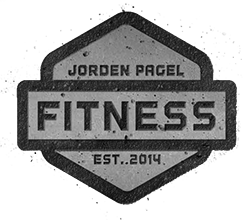Testosterone 101: Sex, Health, and Everything Else

Welcome to Part One of a four-part series on the importance of testosterone. In today’s post, we’re going to be talking about what testosterone is, what it does, and why it’s probably the most important hormone for men.
This is Bob. Bob is a man.

Bob likes lifting weights. Bob wants to get big and strong.
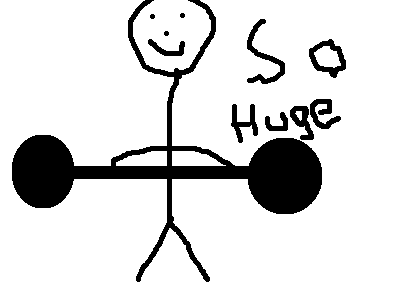
Bob also likes the ladies.

But Bob has a problem…
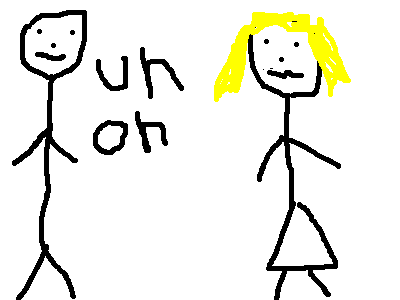
Bob suffers from low testosterone. Bob can’t perform.
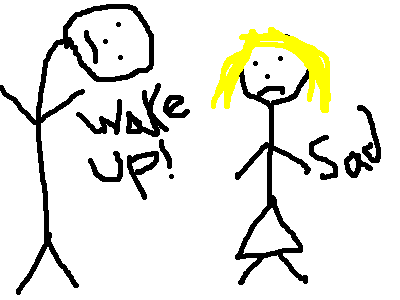
Now Bob has no ladies. Now Bob has no gains. Bob is depressed.
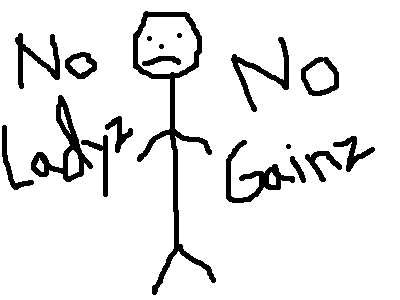
What exactly is wrong with Bob?
Testosterone 101
Before we can get into why low T is causing these problems for Bob – and men everywhere – we first need to understand exactly what testosterone is and what it does.
For a majority of the population (96.7% to be exact) testosterone is simply the male sex hormone. In fact, for many people, testosterone carries a negative image.
High testosterone conjures up thoughts of freak bodybuilders, roid rage, and “that stuff athletes take to get better”. Damn cheaters.
On the other hand, low T is associated with thoughts of sexual dysfunction, performance issues, and a loss of manhood.
Despite these images, testosterone is actually an extremely important hormone, for both men and women. For men especially however, it’s not only important, it’s necessary to live a healthy, sex-filled life.
What Is Testosterone?
Testosterone is part of a group of hormones called androgens, or steroid hormones. It’s mostly thought of as a male hormone, although women produce it, albeit to a much lesser extent. A majority of it is produced in the sex organs, with a small amount produced in the adrenal glands.
There are actually three different kinds of testosterone floating around your blood: albumin, sex hormone binding globulin (SHBG), and free testosterone. Albumin and SHBG are protein-bound testosterone, while free testosterone is not bound to any proteins.
Typically, the two ways testosterone is measured is either by total testosterone, which tests the combined levels of all three types in your blood, or by only testing free testosterone.
What Does Testosterone Do?
As a man, there are fewer hormones more important in your body than testosterone. In fact, it’s what makes a man a man, so it actually is the most important hormone in the male body.
Testosterone is responsible for many things, including:
- Losing fat, gaining muscle, and improving body composition
- Increasing libido, erection quality, sexual pleasure, and performance
- Helping fight off certain diseases such as Alzheimers and heart disease
- Improving cognitive function and mood
- Fighting off depression
- Strengthening bones
We’ll talk about each of these in more detail shortly.
Healthy Testosterone Levels & Low T
The range for what’s considered a “normal” level of testosterone is actually quite large. For men, normal levels of total testosterone fall between 300 and 1000 nanograms per deciliter (ng/dl), and normal free testosterone levels falling between 9 and 30 ng/dl.
When it comes to diagnosing low T, there’s a lot that factors in. Many people believe that testosterone levels naturally decline with age. And there’s evidence to back this up.
This chart from a 1996 study shows the average total and free T levels from men ranging in age from 25 to 100:
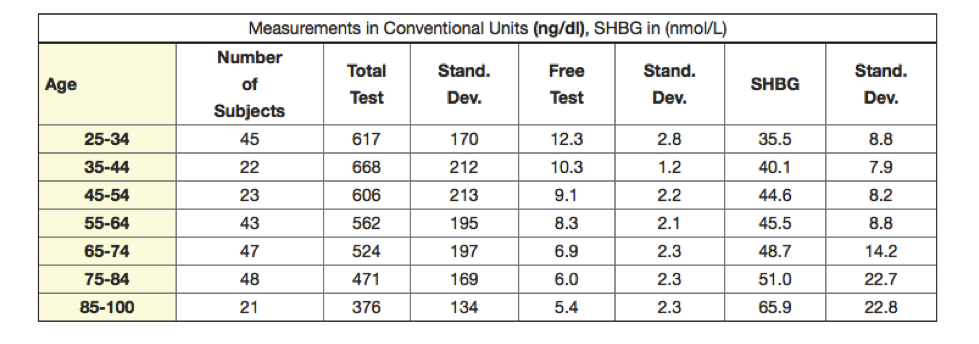
Source: menshormonalhealth.com
However, age many times does not play a factor when it comes to low T, according to Dr. Robert Kominiarek of the Alpha Male Medical Institute. “What the majority of doctors (those dabbling in hormone therapy) do NOT understand is there is ALWAYS a reason for low testosterone levels and one must investigate by laboratory and intensive history to find the potential cause(s).” he says.
“Most commonly I find some history of neurologic insult (hypothalamic and/or pituitary) as the cause, such as traumatic brain injury with or without loss of consciousness, stroke, surgery, medical imaging with iodinated contrast, medication, illegal drugs, excessive alcohol, psychotropic medication, toxin or heavy metal exposure, prior anabolic steroid use, penetrating trauma, radiation, chemotherapy, blunt trauma, blast injury, MVA, motorcycle accident, rollercoaster/vertical drop rides, boxing, martial arts, football, rugby and the list goes on.”
It’s also important to note that healthy levels of testosterone vary from person to person. What’s fine for one may be low for someone else. In addition, total testosterone levels may be at an acceptable level, but free testosterone could be low, leading to symptoms of low T. That’s why it’s important to have both your total and free testosterone levels checked.
Some symptoms of low T include:
- Lack of energy
- Lack of sexual desire or low libido
- Decrease in sexual performance
- Erectile dysfunction
- Sadness or depression
- Decrease in strength, workout, or sport performance
- Decrease in physical endurance
Low T is something I have personally dealt with. While it was nothing like many men have gone through, for a number of months my T levels fell below what was normal for my age, and physical condition.
I experienced a number of the symptoms above, including a lack of energy, lack of sexual desire, decrease in libido, and pretty severe depression. Since taking natural steps to increase my testosterone however (which we’ll talk about later in Part Two), I’ve not only reduced or eliminated these symptoms, but actually have more energy, more sexual desire, and higher libido than I have in my entire life.
The Role of Testosterone
Like we briefly touched on earlier, testosterone is responsible for helping maintain many different functions within our body.
Testosterone helps decrease body fat. A study conducted by researchers at the Charles R. Drew University of Medicine and Science tested the effect of testosterone injections on subject’s ability to lose fat, as well as gain muscle (which we’ll talk about next).
What they found was that the higher the participant’s level of testosterone, the lower their body fat levels. This makes sense because research has shown that it may inhibit the creation of fat cells within the body.
This likely has to do with the fact that testosterone is important for regulating a number of other hormones that affect fat loss, including insulin, glucose, and our metabolism. When testosterone decreases, so does our body’s ability to regulate these functions, leading to the accumulation of fat mass.
Testosterone MAY help increase muscle mass. The same study at Charles R. Drew University where researchers tested testosterones effect on body fat levels also tested its effect on muscle growth.
What they found was that while it does aid in adding lean mass, the results were not statistically significant until T levels exceeded the normal range; meaning that participants in the study did not gain significant amounts of muscle until they were shot up with enough testosterone that their levels matched that of steroid users.
So it appears that increasing your T levels within the normal range doesn’t significantly aid in building muscle. Instead, it’s likely the reduction in body fat gives the appearance that more muscle has been added.
Testosterone increases libido, sexual performance, and erection quality. Often, the first place men notice symptoms of low T is in the bedroom. A decrease in sexual desire, arousal, or erectile dysfunction are all good signs that you may be suffering from low T. In fact, a good sign of lower-than-normal testosterone levels is a lack of erections upon waking, aka “morning wood”.
To better explain, I’ll defer to Dr. Jade Teta, in a recent article for T-Nation:
“The nerve signals transfer into biochemical signals, including signaling molecules cGMP and nitric oxide. This is probably how testosterone gets involved in regulation of erection. When the brain sends nerve signals to the penis, nitric oxide is released and signals cGMP. This then dilates blood vessels and sets the erection cascade in motion with increased blood flow in and decreased blood flow out.
cGMP is broken down by enzyme called phosphodiesterase 5 (PDE5). Since PDE5 degrades cGMP activity, if it’s overactive, blood flow into the penis is slowed and erection is either absent or incomplete.
This is how Viagra, Cialis, Levitra and other erectile dysfunction drugs work. They each act as inhibitors to PDE5, prolonging action of cGMP activity, therefore allowing harder, longer lasting erections.
This may also be where low testosterone comes in. Testosterone treatment increases nitric oxide activity and may stimulate healthy promotion of erectile tissue. Testosterone also may play a role in PDE5 inhibition because adequate testosterone levels are required for these drugs to work.
Testosterone is also having an impact on the brain. It’s not completely understood how testosterone promotes libido and sexual function, but one of the hallmarks of any hormone is its ability to impact many enzymes and other hormone receptors involved in multiple areas. Testosterone is likely acting as a priming apparatus for the male sexual brain and penile function. Without this primer, the entire cascade is disrupted.”
(I encourage you to read Dr. Teta’s article in its entirety)
The bedroom is probably where I first noticed that my levels may be low. I realized at a certain point I started lacking the sexual desire, and even erection quality that I should have for someone my age. Since actively taking steps to increase my testosterone levels, I’ve noticed that not only has all that improved, but it’s the best it’s ever been.
Testosterone may help prevent certain diseases. Maintaining normal levels of testosterone provides a whole host of health benefits, which can help the body fight off disease.
According to Dr. Spencer Nadolsky, author of The Fat Loss Prescription, “Those with low testosterone seem to have a higher risk of type 2 diabetes and even have association with a higher risk of all cause and cardiovascular mortality (dying).”
“This happens because of lowered insulin sensitivity from lower T, plus increased atherosclerosis which is from the reduced insulin sensitivity, and unfavorable lipid changes.” he says.
Studies back this up. Men with lower T levels are more at risk for heart disease. In addition, many studies have shown that low T also correlates with an increased risk for Alzheimer’s disease.
Testosterone may help mental function. While the evidence on this is far from conclusive, studies seem to show a link between declining testosterone levels and declining cognitive function.
According to Harvard Health, “Higher testosterone levels in midlife have been linked to better preservation of tissue in some parts of the brain. And in older men, higher testosterone levels have been associated with better performance on cognitive tests.”
Anecdotally, I can say that I’ve definitely noticed an increase in my cognitive function. The past few months I’ve been sharper, a better writer, and been more productive than ever before.
Testosterone can help fight depression. While it’s not clear to scientists whether low T contributes to depression, OR depression contributes to low T levels, there does seem to be a direct link between the two.
Research seems to indicate that men suffering from depression also tend to have lower testosterone levels, and that men who are administered testosterone treatments have reported increases in mood.
I can’t say for sure that working to increase my T levels has help with my depression, because I’ve been taking a lot of other steps to deal with it as well, but I certainly have noticed I’ve not only been in a much better mood, but more consistently as well.
Testosterone increases bone strength. “One overlooked issue is also decreased bone mineral density which is usually thought of in post-menopausal women but in guys with hypogonadism (low t) it is an issue as well.” says Dr. Nadolsky.
Testosterone has been shown to have a direct link to bone density by helping increase mineralization. Weak bone structure can lead to osteoporosis, especially in older men. It’s also probably no coincidence then that men who do suffer from osteoporosis also tend to have lower T levels as well.
Hopefully now you have a better understanding of the roles testosterone plays in the body, and just how important it is for so many areas of our lives.
In Part Two, we’re going to discuss in great detail all the methods available for dealing with low testosterone, and how to increase your T levels, both naturally and pharmaceutically.
Also:
Part Three: TRT and Anabolic Steroids
Part Four: Testosterone In Women
Fat Loss Made Easy!
Subscribe to the JPF newsletter and get my 5-Day Fat Loss email course absolutely FREE! You'll learn how to create your own fat-shredding program in less than a week.
Plus you'll get the latest updates from the blog, exclusive offers, and other cool stuff.
